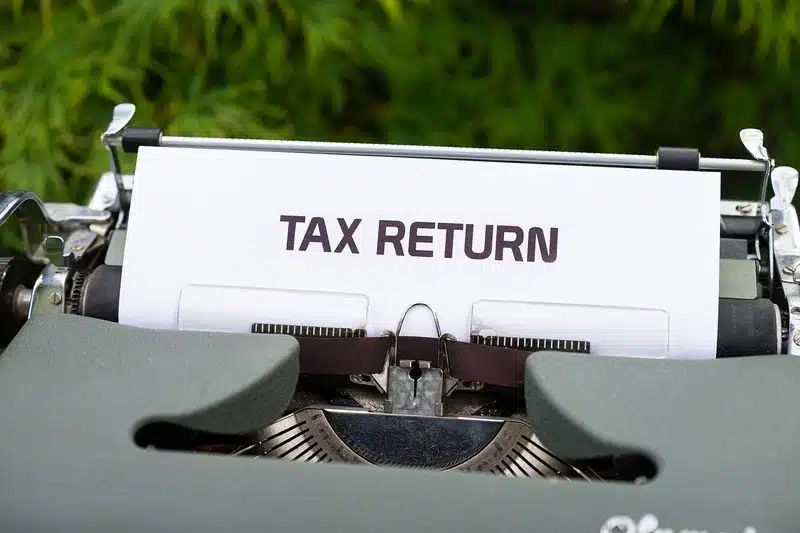Don’t Leave Money on the Table: 4 Must-Know Tax Deductions for Your Tax Return.
Are you fed up of paying tax more than you need to? You’re not alone. A lot of people and companies aren’t able to take advantage of tax benefits simply because they don’t know the tax benefits they’re entitled to. We’re here to assist you in maximizing your personal tax return or for your business while keeping more money in your pockets. This article will highlight five tax deductions you should know about that could help you save thousands. From the frequently overlooked home office deduction to the less well-known medical expense deduction, we’ll take through each deduction step-by-step with examples and suggestions on how you can be eligible. No matter if you’re a freelancer an owner of a small business or an employee knowing these deductions will ensure that you’re not leaving your money unaccounted for during tax season. So, let’s take a dive and discover the secrets to maximizing your tax returns and maximizing the savings you make.
Importance of Maximizing Tax Deductions
When it comes to completing taxes, making the most of your deductions is vital. If you take advantage of all deductions that you are eligible for you will be able to significantly lower the amount of tax you pay and reduce your tax bill by thousands. Many taxpayers are unable to take advantage of all deductions they’re entitled to due to being unaware of their entitlements or they feel overwhelmed by the process. However, don’t worry we’re here to help you navigate the complicated tax deductions world and make sure you don’t leave any money out of the equation.
Home Office Deduction
The idea of working from home is becoming more popular, and the COVID-19 epidemic has increased the trend. If you have a designated area in your home, which you exclusively use to work, you might be qualified for the deduction for your home office. This deduction permits you to take a percentage of your living expenses like rent or mortgage interest as well as property taxes, maintenance and utilities.
To be eligible to deduct the cost of your home office to be eligible, you must meet specific requirements. First your home office needs to be used frequently and solely for business use. This means that you are not able to utilize your office for personal purposes such as watching television and hosting visitors. The second requirement is that your home office has to be your primary office. If you operate from another place in which you perform a significant amount of administration or management functions it is unlikely that you will qualify to take advantage of the deduction. The home office deduction is offered to self-employed and those who are employed from home to ease of use by their employers.
In order to calculate the deduction for home offices There are two ways to calculate your deduction for home offices either the simpler method or the traditional method. The simplified method permits you to subtract $5 per square foot of office, up to 300 sq feet. However, if you’ve got substantial housing costs or if your office space has a greater area than the 300-square feet mark, you could benefit from the standard method.
The home office deduction will result in substantial tax savings. If you can deduct a portion of your expenses for housing it can lower your tax-deductible income, and eventually reduce the tax burden. But, it’s important to be in compliance with IRS regulations and keep the adequate documentation to justify your deduction. Keep track of your expenses for housing such as receipts, lease agreements, and invoices. Also, take pictures or draw a floor plan for your home office to prove that it’s used solely for business use. Following these rules you will be able to get the deduction for your home office and increase your savings.
Education and Student Loan Interest Deductions
The investment in education is a great method to improve your skills as well as increase your earning potential, and enhances your chances of advancing in your career. The tax code recognizes the importance of education, and allows deductions that help offset cost. There are two major deductions for education: the deduction for education and the interest deduction on student loans.
The deduction for education allows you to deduct certain education expenses that you pay by you either your spouse or any dependents. These expenses are tuition fees, books, equipment, and supplies required to be enrolled or enrolled in an educational institution of a certain level. In order to be eligible for this deduction, you have to meet certain requirements, like being registered in an eligible education program and achieving income restrictions. The deduction for education is beneficial as it lowers the tax-deductible income, which results in a less tax liabilities.
If you are a student with loans then the interest deduction could provide tax savings. The deduction lets you take a deduction of up to $2,500 for the interest that you pay on student loans. In order to be eligible for the deduction you must meet certain requirements, like being legally bound to pay interest and being a household income that is below the limit specified. The deduction for student loan interest is a deduction above the line, which means you are able to take it even if you don’t itemize your deductions.
Both the student and education loan interest deductions can ease the financial burden of going to school. Through reducing your tax-deductible income or deducting interest on student loans you could save substantial sums on your tax return. It is important to know the exact conditions and limitations of every deduction. Keep track of your educational costs or interest payment, and talk with a tax professional should you have any concerns. When you make use the deductions offered by these programs, you’ll be able to increase your savings and invest in the future of your family.
Health Savings Account (HSA) Deductions
Healthcare costs are a huge financial burden, however the tax code offers the opportunity to lower these costs. One worthwhile deduction to think about can be found in that of the Health Savings Account (HSA) deduction. An HSA is a savings account with tax advantages that has been created for medical expenses. It allows people who have high-deductible health plan to accumulate money before tax and use it to pay for medical expenses that are eligible.
A contribution to a HSA is tax-deductible, which means they can reduce your taxable income. The maximum contribution limit for 2021 is $3,600 per person and $7,200 in families. Also, people who are over 55 can contribute an additional catch-up of $1,000. The money in HSAs HSA are able to cover various eligible medical expenses, such as doctor’s appointments, prescriptions and medical equipment. Contrary to Flexible Spending Accounts (FSAs), HSA funds can be carried over from year to the following year, which allows you to build savings for the future medical expenses.
To be qualified to receive an HSA to be eligible, you must have a high-deductible health policy (HDHP) and satisfy other conditions set by the IRS. HDHPs usually have lower monthly fees however they have higher deductibles than typical health insurance policies. When you combine the HDHP along with an HSA and an HSA, you will reduce healthcare costs and benefit from tax advantages. In addition, contributions made to an HSA could be made by employees and consumers, offering the flexibility to control your savings in healthcare.
The HSA deduction is a great chance to save tax while planning for medical expenses in the future. When you contribute to an HSA you will be able to lower the amount of tax you pay and make thousands in tax savings on the return you file. In addition, the money you put into your HSA can be put into investments, which allows them to grow tax-free in time. This means that an HSA not just a useful instrument for managing your current health costs, but also an effective retirement savings instrument. You should think about the advantages from an HSA and collaborating with a financial professional to figure out the best plan for maximizing your savings.
Self-Employed Deductions
If you’re self-employed, there are unique opportunities to increase your savings by taking deductions. Self-employed people are accountable for both the employer and employee portion of taxes. You can, however, reduce the part of these taxes that are paid by the employer, which will reduce your tax-deductible income.
A great deduction for self-employed people is the tax deduction for self-employment. If you’re self-employed you’re required to pay the employer and employee employer parts of Social Security and Medicare taxes generally referred to as the self-employment tax. However, you are able to take the employer portion of these taxes, which could lead to significant tax savings. This deduction can help make it easier for self-employed people and decrease the tax burden overall.
In addition, self-employed people can deduct an array of business-related expenses. These can include office rent, utility bills as well as business supplies professional services, marketing costs. In deducting these costs you will lower your taxable income as well as reduce your tax burden. It is important to make sure that the deducts for business are legal that are supported by appropriate documents. Keep track about your expenses for business like invoices, receipts and bank statements to prove your deductions.
Self-employed people are also able to make contributions to retirement funds created for those who are self-employed like Simplified Employee Pension (SEP) IRAs or Solo 401(k)s. These retirement accounts have higher limits on contributions compared to the traditional IRAs or 401(k)s which allows you to put aside more funds for retirement and reduce your tax-deductible income. Contributing towards these funds, you’ll be able to benefit from tax benefits and safeguard you financial stability.
If you are self-employed is essential to know the deductions you can take and use them to save money. Talk to a tax professional who specializes in self-employment, to make sure you’re following the legal regulations and maximizing the tax returns you file. By planning your tax strategy and making use of deductions, you can reduce the tax burden and save more of the money you’ve earned.
Conclusion
Maximizing your savings via tax deductions is an effective investment that has the potential to significantly impact your financial health overall. Through understanding and implementing the most important tax deductions described here, you will be able to legally and ethically lower your tax burden, possibly making thousands or more per year. No matter if you’re a company owner or freelancer, or someone looking to maximize your tax returns. These deductions provide valuable opportunities to save for the future, eliminate obligations, or enjoy the rewards of your hard work.
Keep yourself informed and speak with an expert tax advisor to ensure you are in compliance to IRS regulations and to maximize your savings. Keep detailed documents of your deductions as well as documents to support your claims. In taking benefit of these tax deductions, you will be able to maximize your savings and maximize the value of your hard-earned cash. It’s time to take charge over your finances and prioritize your savings. Begin to maximize your deductions now and reap the benefits for the years to be.









